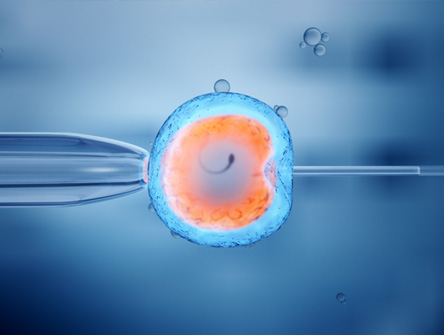“Consent in the legislative context involving reproductive technology is fundamentally at odds with contract law.”
That’s what the Ontario Court of Appeal court wrote in its recent ruling in S.H. v. D.H., when it held that the trial court had improperly relied on contract law instead of using the consent regulations in the Assisted Human Reproduction Act to resolve a dispute between former spouses over the use of an embryo. In this case, there was no genetic material from either party present in the embryo. The regulations state that in such cases, the couple is referred to as the “donor” upon its creation. As a result of that, either party can withdraw their consent.
“It was a bit overdue that the court remind everyone that we do have legally binding regulations that deal with the use of sperm, eggs, and embryos; and that they focus on the important right to withdraw consent that’s in those regulations,” says Monique Shebbeare, a fertility lawyer in private practice in Vancouver.
Shebbeare says that while the regulations may seem counter-intuitive, it keeps the couple on a level playing field in terms of consent. She notes, however, that the regulations are written in a complex way, and could benefit from being simplified.
Shebbeare also says that some clinics, like the one in Ontario used in this case, present options to couples about what might happen to the embryo if they split up. But ticking off a box on a checklist is probably not enough for clients to give proper consideration to these issues. Often, they are not in the right frame of mind at the time, and they’re not getting independent legal advice.
Beverley Johnston, founder of Johnston Family Law in Ottawa, says that lawyers are seeing more fertility cases as the needs of the community in building their families evolve.
As a society, she says, we understand that “these reproductive rights are very delicate, and how we’re going to use genetic material and embryos in particular.”
“Are we going to treat embryos as property, or is there a higher consideration that we want to be careful as to how this genetic material is treated?” Treating embryos as property carries risks, Johnston says, because they could be used for an improper purpose from a social policy point of view.
According to Shantona Chaudhury, partner with Pape Chaudhury LLP in Toronto, who was counsel for S.H. (the ex-husband), this case was the first appellate consideration of the consent regulations under the Act.
“It highlights the animating principles of the Act about informed consent in using human reproductive technology,” says Chaudhury. “It’s about autonomy.”
Chaudhury says that recent changes to the regulations, published in the Canada Gazette in June, make the language a little clearer.
“It’s a very clear decision that is well-written and well-reasoned,” says Chaudhury. “It doesn’t leave any hanging threads that need to be tied up.” She added that it’s important because there isn’t a lot of jurisprudence related to the Act.
What happens to the embryos now that consent has been denied is an open question, says Chaudhury. That is in large part because the Supreme Court of Canada struck down certain provisions of the Act in a 2010 reference on the Assisted Human Reproduction Act. Ontario has yet to pass any regulations in that space.
According to Shebbeare, the Ontario ruling is a good candidate for an appeal to the Supreme Court of Canada. The consent regulations need updating, she says, because the social context has evolved since they were put into place.
Johnston adds that the consent regulations addresses the change of circumstance in couples and peoples’ perspectives over time, and provide the opportunity for changes of heart-based on changed circumstances.
“The amendment to the consent requirement, when an individual is no longer the spouse of the individual, is a compromise, and provides a specific exception where an embryo is created using human reproductive material from one of the individuals in the couple,” says Johnston. “It balances competing issues and ensures reproductive autonomy for the individual whose human reproductive material is utilized.”
During the last Parliament, Liberal MP Anthony Housefather tabled Bill C-404 which would have amended the Assisted Human Reproduction Act to remove the criminal sanctions around compensation for providing genetic material or surrogacy. But it would not have applied to this situation. Parliament didn't get around to debating the bill before it rose for the election.
John Adair, founding partner of Adair Goldblatt Bieber LLP in Toronto, and counsel for D.H. (the ex-wife), did not respond to request for comment before deadline. He also did not indicate if his client would be appealing the decision to the Supreme Court of Canada.



